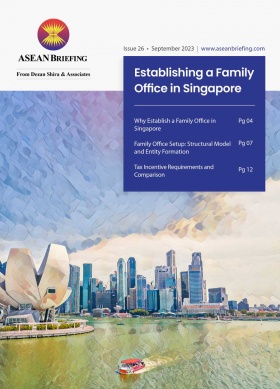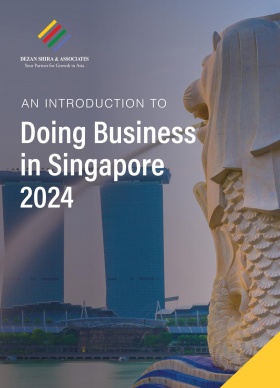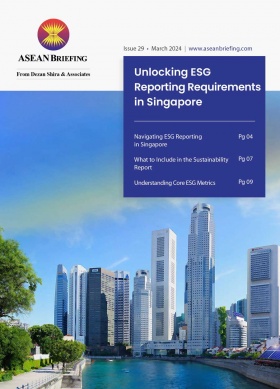What Multinationals Should Know About Singapore’s 15% Tax Rate
Singapore will introduce a 15 percent tax rate for multinationals (MNEs) operating in the country beginning January 1, 2025. This shift aligns with the global Base Erosion and Profit Shifting (BEPS) 2.0 initiative, led by the Organization for Economic Co-operation and Development (OECD). BEPS 2.0 represents a transformative effort to address tax challenges posed by the digitalization of the global economy and reduce profit-shifting practices that erode tax bases worldwide.
Pillar 2 of BEPS 2.0, which introduces the global minimum corporate tax rate, has drawn significant attention. It requires jurisdictions to ensure a minimum effective tax rate of 15 percent for large multinationals. For a country like Singapore, where favorable tax policies have historically attracted numerous global enterprises, this change is expected to create both challenges and opportunities.
Understanding Singapore’s corporate tax landscape before BEPS 2.0
Singapore’s corporate tax regime has long been one of its primary attractions for multinationals. While the statutory CIT rate is 17 percent, effective tax rates for MNEs are often much lower due to extensive tax incentives. These include schemes like the Pioneer Certificate Incentive (PCI) and Development and Expansion Incentive (DEI), which reduce tax liabilities for businesses engaging in high-value-added activities.
Before BEPS 2.0, Singapore’s tax incentives played a critical role in fostering an environment conducive to regional headquarters, advanced manufacturing, and research and development. However, under the new global tax regime, the minimum tax rate requirement limits the effectiveness of such incentives. This raises critical questions for Singapore about its ability to maintain its competitive edge in attracting MNEs.
How BEPS 2.0 impacts MNEs in Singapore
The implementation of BEPS 2.0 introduces a new era of corporate tax compliance, with significant implications for multinationals operating in Singapore. The global minimum tax rate requires MNEs to adjust their tax planning and operational strategies to align with international standards. Here’s a closer look at the specific impacts:
Reduced tax arbitrage opportunities
Singapore’s historically low effective tax rates, achieved through targeted incentives, are now subject to the 15 percent floor. This reduces multinationals’ opportunities to minimize tax liabilities solely by operating in a low-tax jurisdiction.
Higher compliance costs
The BEPS 2.0 framework comes with increased reporting requirements, including detailed documentation of tax structures and economic activities. MNEs will need to invest in compliance systems and expertise to meet these obligations.
Focus on economic substance
Companies must now demonstrate substantial economic activities in Singapore to justify tax benefits. This includes maintaining local staff, conducting meaningful R&D, and making significant capital investments in the country.
Competitive tax incentives shift
Incentives that previously reduced effective tax rates below the global minimum will need to be restructured. Singapore’s government is pivoting toward offering non-tax benefits, such as grants and sector-specific subsidies, to ensure continued attractiveness for high-value activities.
Industry-specific impacts
Sectors that rely heavily on intellectual property (IP) or digital transactions may feel the greatest impact. These businesses, which often rely on favorable tax regimes for IP holdings, will need to reevaluate their strategies under the new rules.
Despite these challenges, BEPS 2.0 also provides opportunities for MNEs to focus on long-term value creation and align with global trends in transparency and fair taxation.
Government Strategies to Retain Competitiveness
Recognizing the challenges posed by BEPS 2.0, Singapore’s government has taken proactive steps to retain its appeal as a global business hub. Central to these efforts is the revamping of tax incentives to align with the new global framework while continuing to foster high-value economic activities.
Revamping tax incentives
To align with BEPS 2.0, Singapore has introduced and updated tax incentives to focus on activities that create genuine economic value. These new schemes ensure compliance while maintaining competitiveness:
The BEPS-Compliant Development and Expansion Incentive (DEI)
The DEI supports R&D, advanced manufacturing, and sustainability projects. It offers tax relief for businesses meeting stringent criteria for local economic contributions, such as job creation and capital investments.
- Tax relief offered: Up to a 10 percent concessionary tax rate on incremental income derived from qualifying activities, compared to the standard CIT rate.
- Qualifying criteria: Businesses must demonstrate significant local contributions, such as job creation, workforce upskilling, and capital investment in Singapore.
Intellectual Property Development Scheme (IPDS)
The IPDS incentivizes multinationals to develop and manage intellectual property (IP) assets within Singapore.
- Tax relief offered: Concessionary tax rates of 5 to 10 percent on income derived from qualifying IP, depending on the scale and nature of the activity.
- Additional support: Grants of up to 30 percent of qualifying R&D expenditure for companies investing in IP development and commercialization.
Enhanced Pioneer Certificate Incentive (PCI)
The PCI is restructured to focus on cutting-edge industries that align with Singapore’s economic priorities.
- Tax relief offered: Companies in emerging sectors such as renewable energy, artificial intelligence (AI), and biotechnology can receive a complete exemption from CIT for up to 15 years.
- Qualifying criteria: Companies must commit to milestones such as technology transfer, creating high-value jobs, and adopting sustainable practices.
Research and Innovation Tax Incentive (RITI)
The RITI is a new initiative aimed at boosting innovation through local R&D efforts.
- Tax relief offered: 250 percent tax deduction on qualifying R&D expenses, exceeding the previous cap of 150 percent.
- Additional support: Grants covering up to 50 percent of costs for pilot projects, prototype development, and collaborative research with local institutions.
Green Investment Tax Incentive (GITI)
As part of Singapore’s commitment to sustainability, the GITI supports businesses investing in environmentally friendly projects.
- Tax relief offered: Concessionary tax rates as low as 5 percent for income derived from qualifying green projects, such as renewable energy and carbon capture.
- Grants and subsidies: Covers up to 40 percent of capital expenditure on green technology and infrastructure.
Enhanced Global Trader Program (GTP)
The GTP, a longstanding program incentivizing trading companies, has been updated to focus on sustainable and digital trade practices.
- Tax relief offered: Concessionary tax rates of 10 percent or lower on qualifying income from trading activities.
- Additional incentives: Benefits for companies integrating advanced technologies, such as blockchain, or demonstrating environmental and social governance (ESG) compliance.
New Investment Incentive Framework
This framework combines tax relief and direct financial support for companies investing significantly in strategic sectors.
- Tax relief offered: Customized concessionary tax rates based on the scale and scope of the investment.
- Grants: Covers up to 30 percent of qualifying costs for large-scale manufacturing facilities or infrastructure projects.
Why Multinationals should continue choosing Singapore
Despite the global tax changes introduced by BEPS 2.0, Singapore continues to be an exceptional choice for multinational enterprises. The country’s appeal transcends tax benefits, encompassing a stable political climate, world-class infrastructure, and strategic location in Asia.
For businesses looking to navigate the complexities of the new tax landscape, Singapore remains a gateway to Asia’s growth opportunities.
About Us
ASEAN Briefing is one of five regional publications under the Asia Briefing brand. It is supported by Dezan Shira & Associates, a pan-Asia, multi-disciplinary professional services firm that assists foreign investors throughout Asia, including through offices in Jakarta, Indonesia; Singapore; Hanoi, Ho Chi Minh City, and Da Nang in Vietnam; besides our practices in China, Hong Kong SAR, India, Italy, Germany, and USA. We also have partner firms in Malaysia, Bangladesh, the Philippines, Thailand, and Australia.
Please contact us at asean@dezshira.com or visit our website at www.dezshira.com and for a complimentary subscription to ASEAN Briefing’s content products, please click here.







